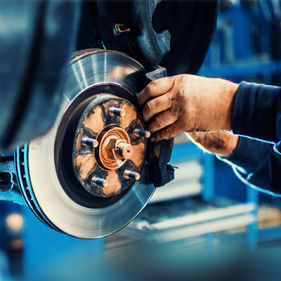By Joern A. Buss
This article first appeared in Automotive News on July 17.
Was Volvo's decision to stop producing cars that rely on internal combustion engines a marketing coup or industry game changer? It may be a bit of both. Yet, what Volvo's resolution more importantly suggests is that the auto industry is at a tipping point — a moment at which the driving forces away from internal combustion engines and toward electric vehicles can no longer be resisted.
Regardless of how many gas-guzzling SUVs and pickups are sold in the short run, automakers must come to grips with climate change, urban pollution, governmental regulation and consumer concern over emissions. They must embrace those realities and incorporate them into their business models. The question for car companies is whether they want to design and strategize for the future or a past that is unlikely to ever be replicated.
It's clear there's no rush toward the inevitability of EVs. In fact, many auto companies drag their heels on EV development. While consumer interest is growing, car buyers are in the end still turned off by the lack of options, higher prices, limited battery range and insufficient infrastructure that make charging EVs a challenge. Given relatively low gasoline and diesel prices, the economic imperative for an alternative fuel is also minimal.
Regardless of how many gas-guzzling SUVs and pickups are sold in the short run, automakers must come to grips with climate change, urban pollution, governmental regulation and consumer concern over emissions
The only thing that will hurry along an EV future would be legislation and development of an infrastructure to support the vehicles. We see it playing out differently for countries with a strong automotive heritage such as the U.S. or Germany vs. nations that don't have to contend with those legacy players. In general, the more important the contribution from automotive, the less aggressive a nation will probably be with regulation, although there are strong calls in Germany to ban gasoline and diesel cars by 2030. Of course, in the U.S., various forces are pushing in the opposite direction.
Then, there are nations such as Norway where already almost four of every 10 cars is an EV. There, lawmakers have decided to ban sales of fossil fuel-powered vehicles by 2025. France, a nation with a clear automotive history and bigger market, just announced the end of sales of gasoline and diesel vehicles by 2040 to meet emission targets under the Paris climate accord.
And the interest in EVs is not just in the developed world. India, a potentially rich new automotive market, is considering a total ban on internal combustion cars by 2030. For automakers planning for the future, this should be a wake-up call.
In nations such as Norway, adoption of the proposed ban on internal combustion engines could result in near total penetration within a decade
Look, too, at the forces driving Volvo's decision. Volvo was acquired by Zhejiang Geely Holding Group of China in 2010, and while its roots are Swedish, the decision supports China's battle against extreme urban air pollution and its desire to dominate the global EV market, which has prompted investment — both domestic and foreign — in local manufacturers and parts suppliers. On the same day Volvo announced, Daimler and Chinese partner BAIC invested $735 million in EV battery production in China.
Volvo's decision was also influenced by European concerns over nitrogen-oxide particulates in the air, especially in metro areas. These have prompted calls for legislation banning diesel-powered vehicles that produce NOx. As a major producer of diesel-powered vehicles, along with many other high-end carmakers, that potential also had to figure prominently in Volvo's calculations.
Yet, despite all those pressures, significantly more EV penetration over the next two decades is not a certainty. In the U.S., legislation supporting electrification can make a huge difference. In nations such as Norway, adoption of the proposed ban on internal combustion engines could result in near total penetration within a decade. On the other hand, without any legislation in nations not as receptive to EVs, penetration may remain as low as 10 percent by 2035.
Yet, despite all those pressures, significantly more EV penetration over the next two decades is not a certainty. In the U.S., legislation supporting electrification can make a huge difference
To accelerate the overall electrification trend, the optimal scenario would be for nations to coordinate their efforts. This kind of alignment would provide a framework for investments by automakers over the next two decades — something the industry desperately needs.
While that would be ideal, automakers would be ill served to simply wait. To successfully weather the impending shift, they must look for opportunities now to work with other industry players, including competitors, to develop the EV supply chain. The willingness of the industry to collaborate will limit each company's risk exposure while driving standardization that brings costs down. Working together should also include internal-combustion engine platforms as they are phased out and r&d investments shift to faster-growing technologies.
While it's unclear how fast EVs will dominate our future, it should be obvious the world has reached an irreversible point from which there is no going back to the days of a gasoline-driven society — no matter how low oil and gasoline prices go. Volvo's strategy simply represents recognition of that reality.







